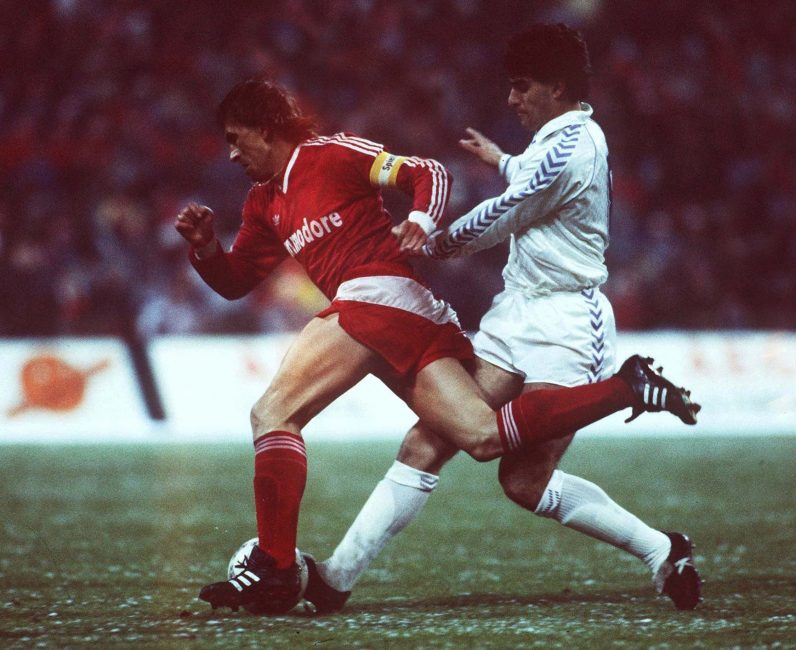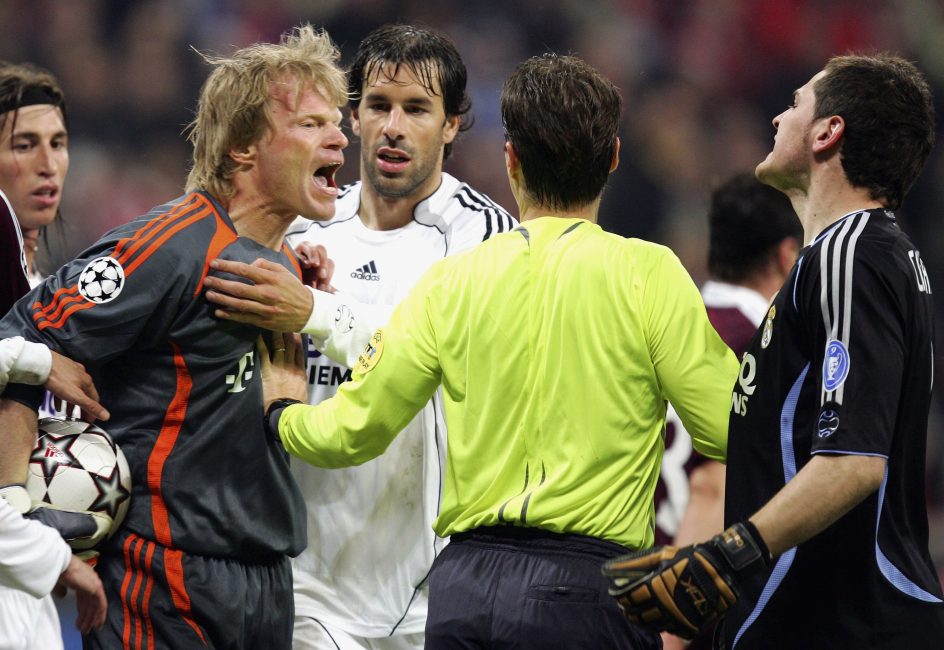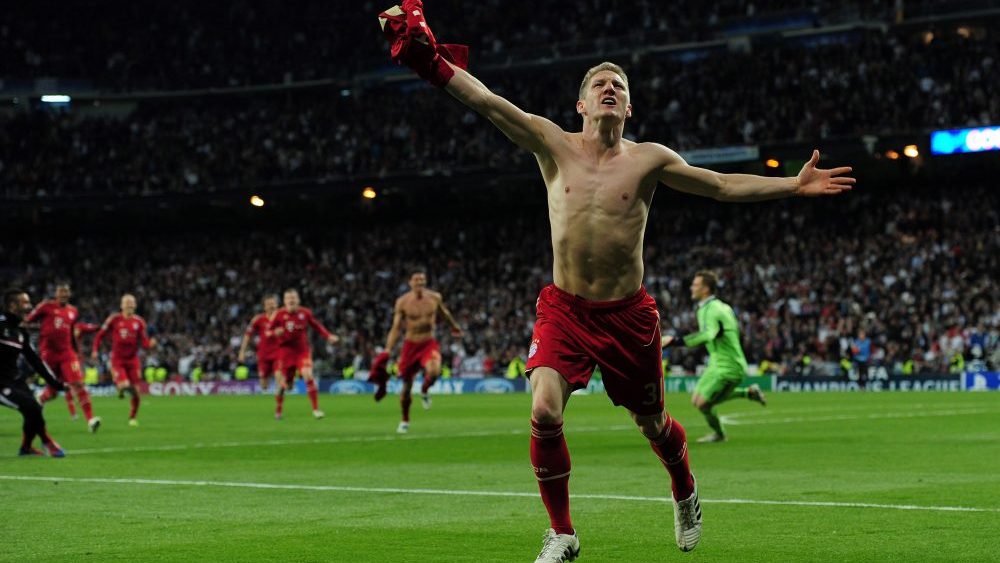Round-Up: “La Bestia Negra”
To do that, we first need to clarify one misconception about this myth: the name doesn’t imply that the opponent is superior and unbeatable, but rather that the opponent is somebody who just can’t be beaten, despite their inferiority.
So while the nickname implies a certain appreciation, it’s much less deferential than German media often makes it sound. The Spaniards never truly feared the “Bestia Negra” and it is more a reference to Munich’s absolute determination to win.
In a way, the situation is comparable to Bayern’s rivalry with Dortmund during their high-flying period under Jürgen Klopp. While the initial losses during Dortmund’s first league-winning season were seen as accidents, the negative series continued in 2012. Despite a supposedly better team, Bayern simply couldn’t seem to win against BVB, culminating in the dramatic 2012 DFB Cup final.
While the term “La Bestia Negra” first appeared in the early 2000s in Spanish media, the rivalry between the two clubs goes back much longer than that.
Enmities in the 1980s
According to former Bayern player Klaus Augenthaler in a recent German newspaper article, the contention started in August 1980, when Bayern finished off Madrid 9-1 in a friendly game – a demolition that Real didn’t want to just take like that.
The following year, during the pre-season tournament “Trofeo Stantiago Bernabéu”, they were gearing up to get their revenge, with the Spanish players trying to unfairly stop Bayern’s team as high up the pitch as the halfway line. Augenthaler thinks there was a real possibility of the game getting abandoned. In the game for third place, a still enraged Bayern team caused even more uproar when Karl-Heinz Rummenigge and Paul Breitner were sent off with red cards at half-time after insulting audience and referee. After that, Uli Hoeneß in his position as team manager called off the game.
In the season of 1986/87, the two rivals met on the big stage in the semi-final of the European Champion Clubs’ Cup, with Bayern winning the first leg in Munich’s Olympiastadion with a clear 4-1.

(Photo: Bongarts/Getty Images)
It wasn’t the result that made the game famous, however, but rather Real’s frustrated players. Midfielder Juanito lost his cool and brutally kicked Lothar Matthäus at the half-way line, resulting in a five-year ban in European competition. Another famous image: after getting kicked in the chest, Augenthaler formed bull’s horns with his fingers on his forehead.
Unsurprisingly, this lead to a rather cool welcome for Augenthaler by the Madrid audience. In the return leg, he would play an important role yet again: first his own goal put Real Madrid in the lead, then he let forward Hugo Sanchez provoke him and was sent off after a slap in the face against the latter. However, that own goal should remain the only goal for Madrid and Bayern went on into the final, where they lost against Porto.
Reheating the rivalry in the new millennium
Due to a lack of games of international relevance, the enmity lost its explosive power during the 90s, but that would change when the two teams clashed four times in one season at the turn of the millennium. After two convincing wins for Bayern in the group stages (4-2 and 4-1), Real got their revenge in the semi-final, when they went through to the final with a total result of 3-2, and eventually won the title.
The encounter in the following season of 2000/01 would be much more influential in building the “La Bestia Negra” myth. Once again, the two teams faced off in the semi-final, but this time Oliver Kahn, probably in the best form of his life, developed into Madrid’s new enemy stereotype. The “über team” around Raul and Figo was the highly-favoured team to go through against a Munich team mostly made up of fighter types like Jeremies and Effenberg.
However, the first leg in the Bernabeu turned into a desperate run on Kahn’s goal; Raul, Figo, and Guti kept trying but failed to score. The Titan blocked all of their attempts, and Bayern managed to win the game 1-0 with an Elber goal. After a 2-1 win in the return leg for Bayern, Real were out of the competition and Bayern’s win against Valencia in Milan is legendary history.
This performance, so extraordinary that it felt fishy, made Kahn the new, personified “Bestia Negra”. In essence, the ambivalence between deep dislike and simultaneous, secret admiration for the achievement and resilience lies at the centre of the phenomenon.
„Bestia Negra“’s last blossoming
When Bayern and Real met yet again in the spring of 2007, this time in the quarter-finals of the Champions League, Bayern was the underdog once more. But the Spanish press remembered their arch enemy of six years ago, and so Marca’s headline, over a sweaty, grass-stained Oliver Kahn, was: “This is the enemy”.

(Photo: Martin Rose/Bongarts/Getty Images)
During the first leg in Madrid, Mark van Bommel scored the all-important 2-3 in the 88th minute, celebrating it with a balled fist in the crook of his right arm – a bad insult in Spain. The former Barcelona player was elevated to new enemy status by Marca in their next-day issue.
Roy Makaay then made the return leg in the Allianz Arena a historic game, scoring the 1-0 lead after just 10 seconds. Bayern were through yet again.
Meeting on eye level
In recent years, Bayern met the Madridistas twice more in semi-finals: 2012, in the year of the tragic “Finale dahoam”, and in Pep’s first season in 2014. Each team won one of these duels.
The “Bestia Negra” myth was less prevalent in the Spanish press, however, due to two reasons. For one, Bayern have reached a form where a victory for them can’t be seen as a surprise anymore, the fixture has become a meeting on eye level. This is true for this season as well, with the two teams ranked 1st and 2nd in the ELO Ratings. For another, the current Bayern team lacks real enemy figures for Real.
The outstanding temperaments, like Augenthaler, Kahn, or van Bommel have been replaced by a toned-down generations of players. If one had to decide on one player, Robert Lewandowski would probably be best-suited for the job, seeing how he and his four goals in the 2013 semi-final were decisive in Real’s loss – back when he was still playing for Dortmund.
For the two games in the coming weeks, therefore, this much is true: the “Bestia Negra” myth of Madrid’s bogey team might not be accurate anymore, but that’s anything but a bad thing. On the contrary, Bayern now has the ability to beat Real with their own strength. It will be interesting to see which Bayern player will be decisive this time, and earn the Marca front page after the match.
Finally, big thanks to my ghost writer, the fantastic @TfGnther.
Let’s have a look at the links for this week
Heavyweight showdown for Bayern and Real Madrid | UEFA
FC Bayern Women and Messe München Bring Disadvantaged People Into The Football Stadium | ISPO
Tactical Analysis: Gladbach 0-1 Bayern | 2nd half structural improvements hand Bayern victory | Miles Olusina | Outside Of The Boot
Dante and family swing by the Allianz | John N. Dillon | Bavarian Football Works
Martinez: Hard work separates Bayern from the rest | Fox Sport Asia
Kroos: I’m not scared of Bayern Munich | Sportal
Building the ultimate footballer: Ronaldo, Messi, Lahm and more | Jonathan Molyneux-Carter | ESPN FC
Sule explains why he snubbed Chelsea for Bayern | Dom Farrell | Goal
Arsenal and Bayern Munich fined for fan incidents during Champions League clash at the Emirates | talksport
FC Bayern opens China office following US success | FC Bayern
Bayern Munich Heads for China in Search of Sponsors, Support | Bloomberg
Bayern Munich bullish on growth of club in United States | Christopher Harris | Worldsoccertalk
Recent Miasanrot articles
Women’s Champions League: FC Bayern 1-0 PSG | Jolle | Sam
Johan Cruyff & FC Bayern München | Eskender
FC Bayern academy: the situation in March 2017 | Martin | Sam & Michael
3 Things We Noticed: Borussia Mönchengladbach – FC Bayern 0-1 (0-0) | Christopher | Bettina
Tweets about FC Bayern Stats, Maps, and Graphics
You are currently viewing a placeholder content from X. To access the actual content, click the button below. Please note that doing so will share data with third-party providers.












I must say it was hard to find your site in search results.
You write interesting posts but you should rank your page higher in search engines.
If you don’t know 2017 seo techniues search on youtube:
how to rank a website Marcel’s way